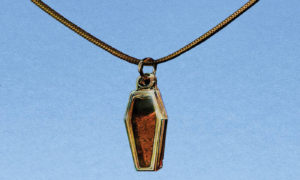 Rarely does a title so perfectly evoke the quality of an album’s sound, imagery, and motifs as does the title of the new album from multi-instrumentalist David Grubbs, released this week on the Drag City label. If The Plain Where the Palace Stood sounds like the title to an expansive work of literary fiction, it’s because the music itself is likewise expansively thematic. Its experimental mode of wandering instrumental capers and poetic ponderings strive for a higher expression of some particular feeling that mere words could hardly pinpoint.
Rarely does a title so perfectly evoke the quality of an album’s sound, imagery, and motifs as does the title of the new album from multi-instrumentalist David Grubbs, released this week on the Drag City label. If The Plain Where the Palace Stood sounds like the title to an expansive work of literary fiction, it’s because the music itself is likewise expansively thematic. Its experimental mode of wandering instrumental capers and poetic ponderings strive for a higher expression of some particular feeling that mere words could hardly pinpoint.
With its exotic folk feel, scampering violin, and lo-fi droning, the title track is like a long walk through a prairie-land, alive with life but somehow still vast and empty. “I Started to Live When my Barber Died” and “Ornamental Hermit” are both humble poetic narratives accompanied by the careful caresses of gentle guitar lines. They mull over the mysteriousness of life and time, over the decimation and wisdom of aging. I cannot help but feel that, with its imagery of a palace that once stood and a gilded man, that “Ornamental Hermit” is a metaphorical reference to the tomb of some long-dead King. This intriguing thematic craft loses focus with “Super-Adequate” and “Second Salutation,” as the tracks drop their predecessor’s modest charm, and, in lacking sufficient lushness, become too minimal, tedious and unimaginative.
But the best is saved for the album’s latter half. The crepuscular lullaby “The Hesitation Waltz” returns to a poetic lyricism and conjures up that quiet, lonely spot in our minds. From the desiccated journey of “A View From the Mesa” until the droning abandon of the closing “Third Salutation,” the imagery is just as it should be, evoking depopulated spaces where a forlorn guitar steadily blows out notes, to accompany what could only be passing tumbleweeds. It is a little soporific and sad, but, like the title of the album, its empty desolation is immensely suggestive of something that was and could be.










